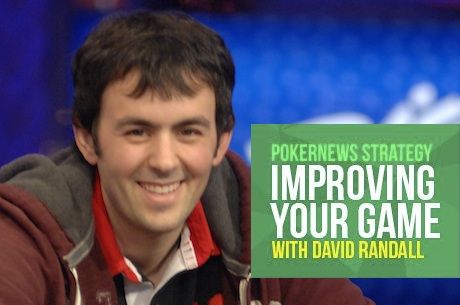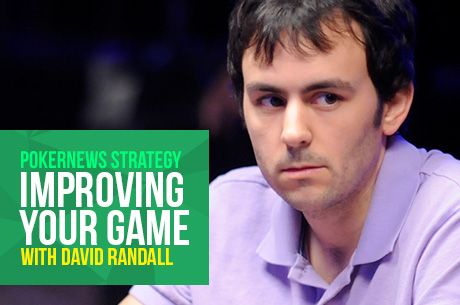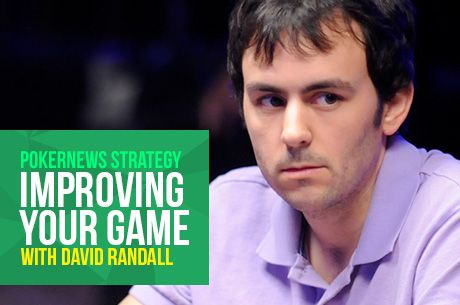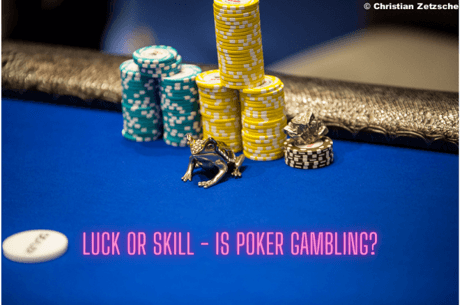Improving Your Game with David Randall, Vol. 8: Motivation and the Mental Game

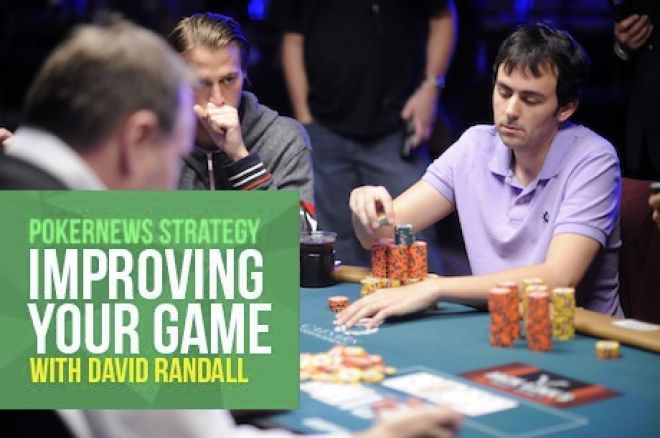
What’s up, guys? I must admit that writing these entries has become one of my favorite pastimes. I truly enjoy sharing my experiences with others and perhaps providing some insight to people dealing with issues that I have also encountered.
Today we are going to talk about the mental game. A person’s outlook on poker — just like one’s outlook on life — is all about perspective. I have friends who play over 60 hours/week who have spoken to me about how they wish they had more balance in their lives. I also have friends who play 20 hours/week and wish they were motivated to play more hours.
I would like to address those on each end of the spectrum. I will begin by talking to my soldiers who play 60 hours/week (or even more in some cases).
I would first like to say that I am extremely impressed with you if you are willing to put that level of dedication into anything. You clearly have the drive to be successful at anything you do. However, one problem with spending so much time at the poker table is that you risk becoming very one-dimensional.
One of my biggest weapons at the table is my ability to chit-chat about a very wide range of topics. Being able to relate to anyone allows you to manipulate in-game dynamics much more efficiently. Once you get the table to open up conversationally, many of those spots that are otherwise “in a vacuum” can be seen with much more clarity because a social dynamic has been created which certainly affects the average player’s play.
This is why it is healthy for my obsessive types perhaps to find a secondary obsession — something besides poker. Whether it be fitness, sports, painting, or tap dancing, having another outlet through which to spend energy and display creativity not only makes you more well-rounded, but also more human (and relatable). It also ensures that you will remain fresh at all times and will be playing at 100% every time you sit down.
Now I’d like to address my 20 hour/week folks (which is a much larger group than my obsessive workers).
I believe that people limit their hours playing for many different reasons. In some cases, people just have other more important obligations such as work and/or family. I respect both of these things and agree they are very important, though they can make it hard for you to have an edge on someone who plays 50 or more hours/week consistently.
There are other reasons people limit their hours that are much more interesting. I know some for whom the desire to play a certain number of hours is there, but being averse to the swings or risk associated with the game they are playing keeps them from following through.
For example, in a $2/$5 game ($1,000 max. buy-in), I have seen on many occasions someone get stacked for $1K and get so dejected from that one hand the player instantly picks up and leaves. In such a case if your hourly win rate in the game is $40/hour and you cut your eight-hour session down to three hours because of that one bad hand, you just robbed yourself of an additional $200.
Whether you run good or bad on a given day is almost irrelevant. Your hourly rate is what it is most important, and when you truly accept this you can grind in peace without being too emotionally invested in the outcome of that specific day.
At the same time, I do understand that it’s not particularly pleasant to lose an entire buy-in in a single hand, but the skill you want to develop is persistence. Personally, I have a very short memory. I value the information I have gained in the past with regard to how my opponents play, but specific stack fluctuations leading up to the next hand are mostly insignificant.
Another reason people limit their hours at the table is boredom. Everyone enjoys achieving goals, but not everyone gets to achieve them. To be truly successful at anything you have to be in love with the process. If you find yourself becoming bored at the table, you are simply not doing enough.
There is information to be gained via being observant of other people while they are in hands or via conversation that you start up at the table. You must think of yourself as a force with which to be reckoned. Allow your inner predator to come out. To find situations you can exploit at the table, you often must create them. The thrill of doing so is why you got into poker competitively in the first place, right? Have fun with it.
Learn how to use different tactics in different situations. Sometimes I will be super nice to the table and make everyone love me. I make sure I talk about subjects they are interested in and get them talking about themselves. Other days I will simply try to be scary, or mysterious. Cater your endeavors to your mood. Make the table serve your needs.
By taking this approach and knowing that you have the ability to control the dynamic at the table, you will be empowered. Try this every time you sit down and you will certainly have more fun and want to play more hours. Don’t get me wrong — I know what it’s like to be stuck and feel robotic and in a rut. But you can still keep your mind active and avoid feeling bored at the table.
Speaking of being in a rut, downswings can also sometimes affect motivation and thus lessen how many hours someone plays. No one likes losing. Ironically, the people who are most successful at poker are great at it. They take it completely in stride almost unaffected. After a bad day they routinely come back the next day fresh and ready to crush without allowing yesterday’s loss to enter into their minds.
Personally, if I have a few losing days I get a bit dejected sometimes. This is when it is most important to keep things in perspective. Think back to other times you felt this way and how it did eventually turn around. If you understand that it’s just another valley that will eventually be followed up by climbing back up to a new peak, then you can keep moving forward without becoming stagnated.
Well, there it is — a look inside my perspective when it comes to the mental game and staying motivated. I appreciate your time as always and wish you all (only my readers) luck at the tables.
~David “Big Tyme” Randall
Get all the latest PokerNews updates on your social media outlets. Follow us on Twitter and find us on both Facebook and Google+!

